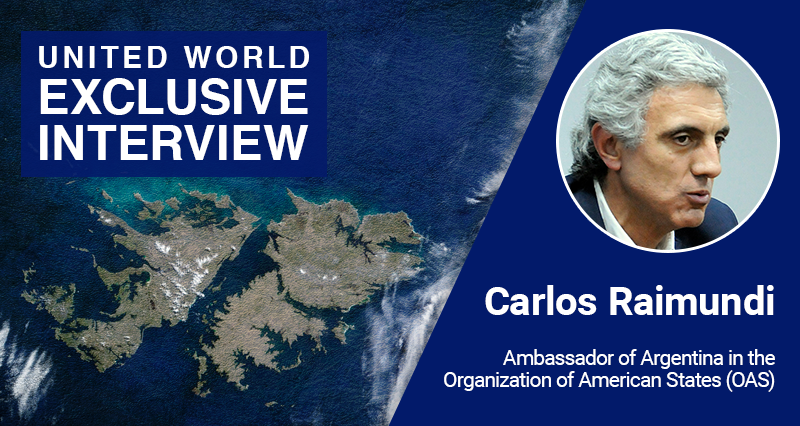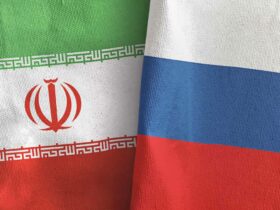By Oscar Rotundo / Buenos Aires
Forty years after the battle for sovereignty in Malvinas and in view of the global offensive of the British colonial policy from the South Atlantic to Ukraine, we interviewed Carlos Raimundi, Argentine representative to the OAS on the current situation of the conflict.
The Argentine diplomat classified Britain’s Malvinas policy as “colonialist”, stated that European countries had a new margin of operation after BREXIT and announced to create “discomfort for Britain including its economic interests”.
United World International and PIA Global have simultaneously published this interview.
Considering the BREXIT and the condemnation of colonization policies, are we today in a better position to recover sovereignty over the Malvinas Islands?
There is no doubt that by the principles of territorial integrity, legal continuity and geographical contiguity, the Malvinas Islands belong to Argentina, in addition to the Sandwich and Georgias Islands and their surrounding seas. There is also no doubt that maintaining control of a territory several thousand kilometers away from a metropolis constitutes an act of colonialism and does not correspond to the present of humanity.
Undoubtedly, after the Brexit, when the UK’s relationship with the European Union has started to show tensions in different aspects, certain European governments should be closer to the Argentine position due to their ideological sign as for instance Spain or Portugal. As the United Kingdom left the European Union, these countries are no longer obliged, as they were before, to classify the Malvinas Islands as British overseas territory. And this undoubtedly can lead to a change of position in the international forums.
Is Argentina in a position to review the Madrid Treaty investment pre-emption agreements in favor of the United Kingdom?
In relation to the Madrid Treaty, what happens is that although the overwhelming majority feeling of the Argentine people is in favor of the recognition of our sovereignty in Malvinas, this has not been translated into a constant state policy that binds both the national popular governments and the most reactionary ones.
So when there have been governments more committed to the geopolitical and financial interests of globalized capital, the consequence was the Madrid Treaty in the 90’s, the Fordari-Duncan Agreements during the Macrismo; so undoubtedly the revision of these agreements in foreign policy is necessary every time there is a popular national government in our country.
What is Argentina’s agenda and what are the prospects?
Argentina has two priorities that are incontrovertible. First, the Antarctic projection, the bi-continental projection, the oceanic projection of a country that has as many kilometers of Atlantic coast as ours in terms of the use of our natural and strategic resources; and in agreement with this, secondly the preservation of the region and of the South Atlantic as a zone of peace.
Denouncing British nuclear weapons in the South Atlantic
That is why two things are necessary: To create discomfort for the United Kingdom regarding its position of comfort, affecting their business interests in our country and on the Malvinas, as it was done with the worsening of the penal sanctions to the British companies during the Kirchnerism; at the same time, the denunciation of the presence of nuclear weapons in the region and the construction of a majority in the international organizations through votes. But this majority needs to go beyond rhetorical support, which Argentina already has: it has it in the African countries; in the G7+ China; it has it in the United Nations; it has it in CELAC and in the OAS; but this support has not been translated into a change of attitude by the United Kingdom.
Discomfort Britain
This means that what must be done is to transform the pronouncement of international law into concrete facts that modify the situation of comfort in which the United Kingdom finds itself, refusing to sit down at the negotiating table of the sovereignty dispute.
Finally, it is one thing to have ethical, legal and political reason, and another thing to build the necessary power to materialize the effective exercise of that reason. Development, internal social cohesion, a greater role in international trade and Latin American integration are some of the measures ahead of us to build that power.
And, undoubtedly, we need to discomfort the position of the colonial power, seriously affecting its interests as long as it does not comply with what international law imposes, so that London has to accept the dispute and engage in a peaceful dialogue to resolve the conflict.

















Leave a Reply